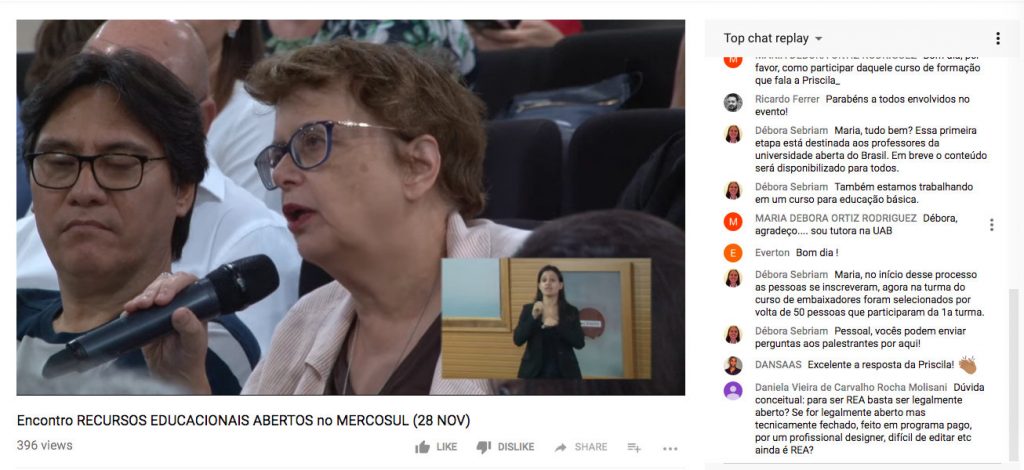Substitutive text by federal representative Margarida Salomão to law proposal nº 1513/2011 was approved on December 5 in the House of Representative’s Education Commission
The Education Commission unanimously approved on Wednesday, December 5, 2018, law proposal nº. 1,513 / 2011, reported by federal representative Margarida Salomão (PT/MG). The purpose of this bill is to introduce into Brazilian legislation the parameters for demanding and incentivizing the adoption of Open Educational Resources (OER). This updated version (substitutive text) reflects the recommendations of recent international documents such as the Ljubljana Action Plan (2017), an outcome of the 2nd UNESCO OER Congress.
The bill establishes the procedures to be adopted by government at all levels in contracting, producing and subsidizing educational resources. According to the proposal, educational resources created by public staff at all levels (administrative, teaching, research and so forth) should automatically be licensed and made available with an open license, in a public repository. The bill also recommends the same procedures for any educational resources which are commissioned by government. Educational materials can be in different formats, but when they are financed or subsidized by public funds, they must be an open educational resource.
The proposal’s substitutive text was reformulated with the support of staff from the Ministry of Education and those involved in the
implementation of the Open Government Partnership Digital Educational Resources Commitment (OGP-Brasil).
The bill was presented during the MERCOSUR OER Meeting, organized by UNESCO, the Ministry of Education of Brazil, and the Educational Sector of MERCOSUL, with the support of CAPES, the UNESCO Chair in Distance Education (UnB) through Open Education Initiative (partnership with Educadigital Institute). Rep. Margarida Salomão who was present at the event noted that: ” Open educational resources are, today, globally, an alternative to balance respect for copyright, the right of all to access information and culture, and the right to quality education in the context of a digital culture,” she said.
The implementation of Open Education and OER policies has grown worldwide, based on the conviction that resources financed with public funds must be open and accessible to all. In the state of California (USA) public book purchases already give priority to open works and the state of Washington has decided to publish all curricular materials online through the Open Course project Library. Poland has one of the most recognized open book programs in the world. Slovenia adopted a state public policy for open education, called Opening Up Slovenia.
The availability of educational resources with open licenses in Brazil also strengthens the recent Brazilian Digital Strategy for Education, which includes a chapter about the importance of OER, and further enhances the representation of Brazil in the Open Government Partnership (OGP) with the goal of inclusive, equitable and quality education for all, as part of Agenda 2030 (UN).
The proposal will now be reviewed by the Culture Commission and then to the Commission on Constitution and Justice (CCJ)
